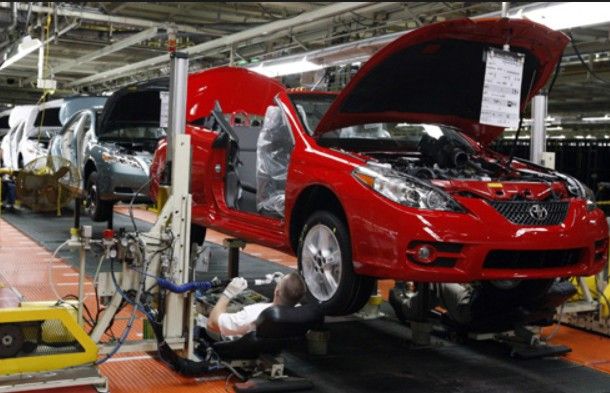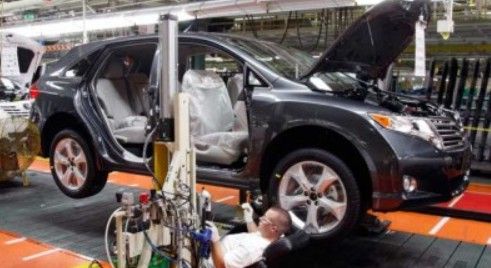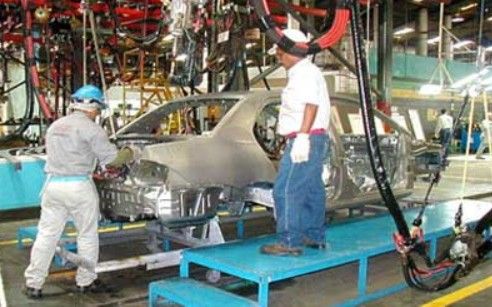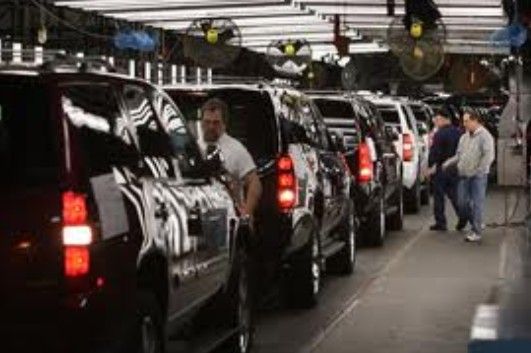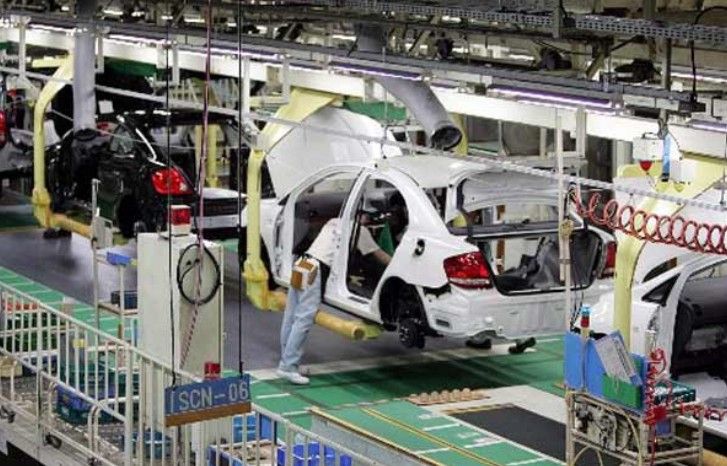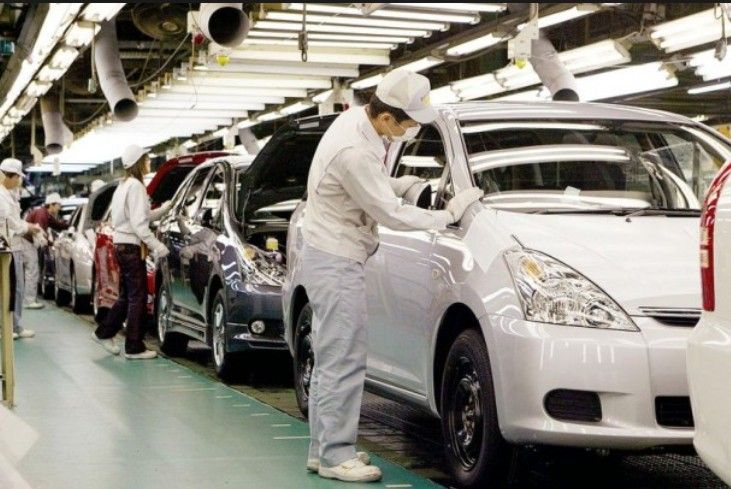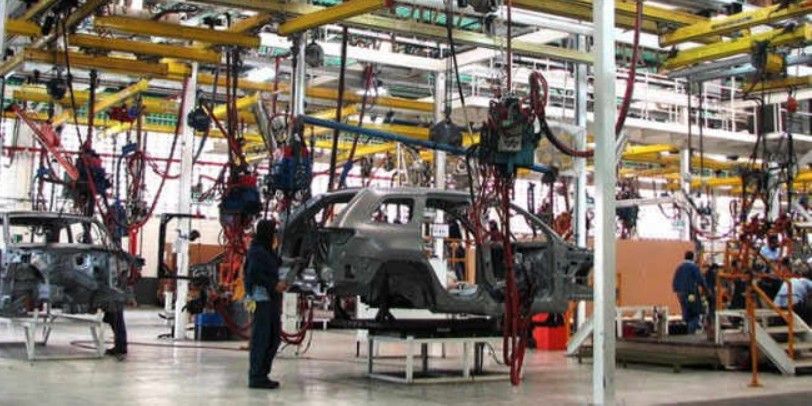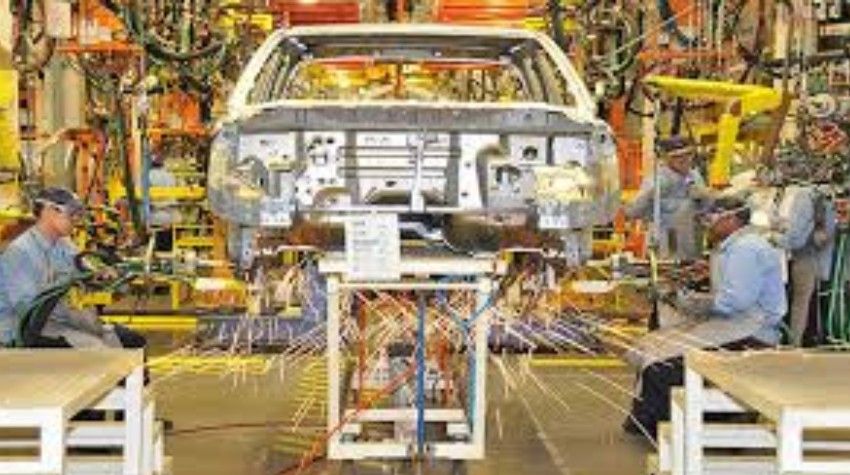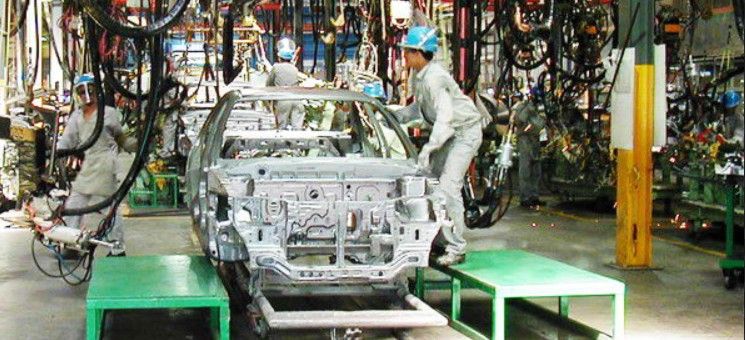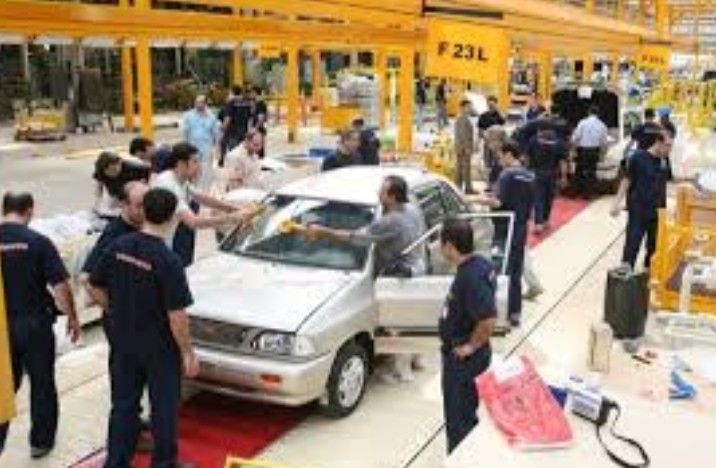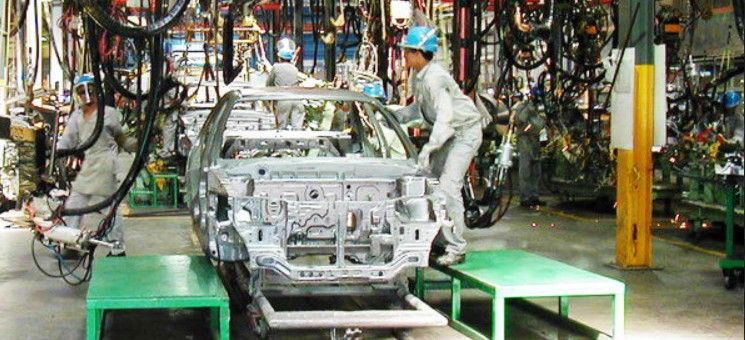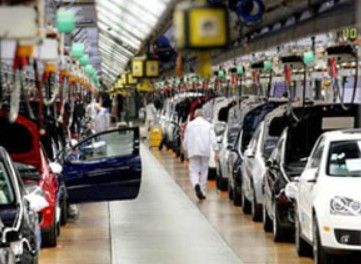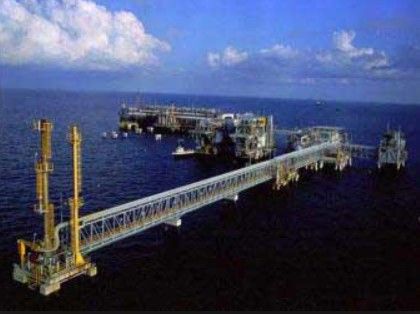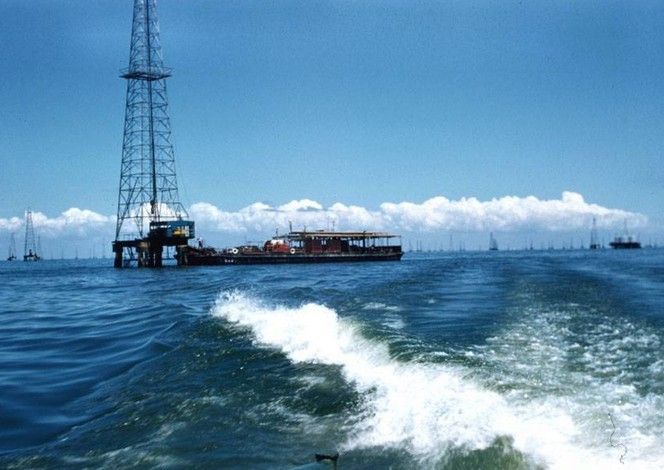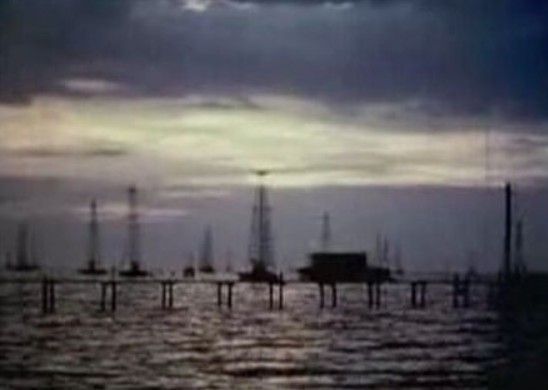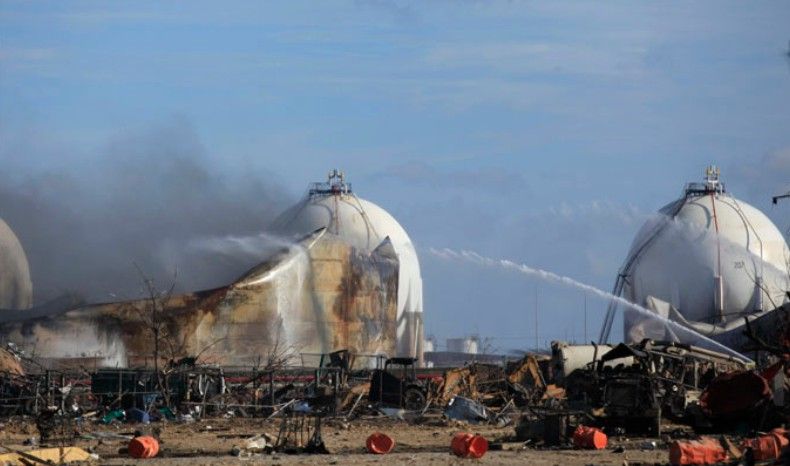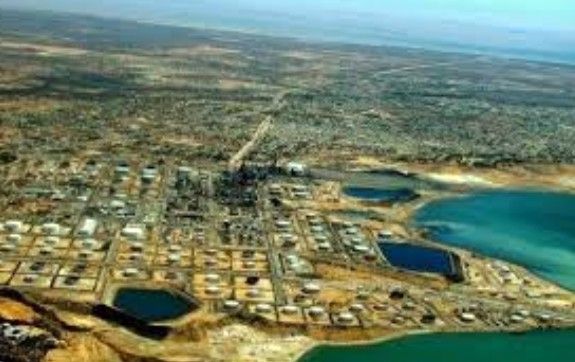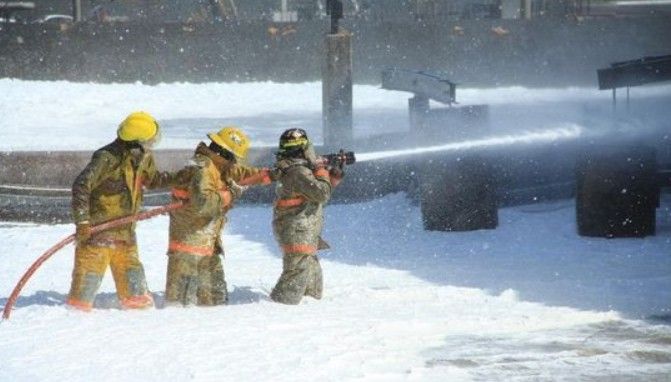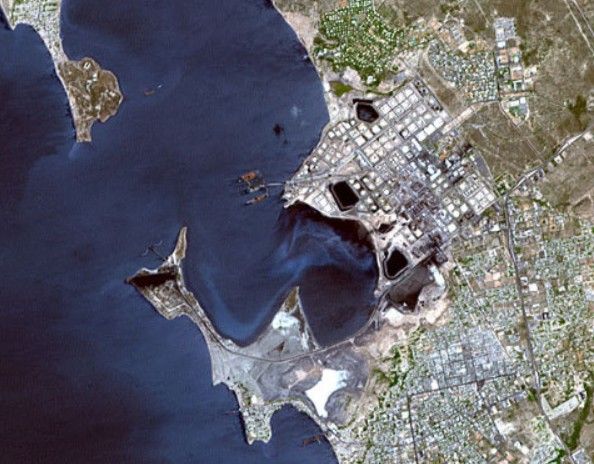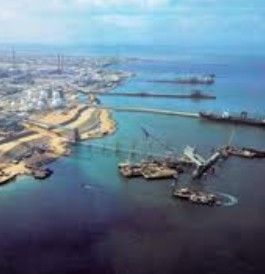. @hjbentham . @clubofinfo . @dissidentvoice_ .#tech .#gmo .#ethics . @ieet .
Category: business

AN ACTUAL EXCHANGE BETWEEN THE ROYAL DUTCH SHELL WORLDWIDE CEO AND THE ROYAL DUTCH SHELL WORLDWIDE CHIEF STRATEGIST!
AN ACTUAL EXCHANGE BETWEEN THE ROYAL DUTCH SHELL WORLDWIDE CEO AND THE ROYAL DUTCH SHELL WORLDWIDE CHIEF STRATEGIST!
AN ACTUAL EXCHANGE BETWEEN THE ROYAL DUTCH SHELL WORLDWIDE CEO AND THE ROYAL DUTCH SHELL WORLDWIDE CHIEF STRATEGIST!
QUESTION: HOW CAN WE ILLUSTRATE MR. ANDRES AGOSTINI’S CONCURRENT COORDINATED CONVERGENT SYSTEMS THINKING (CCCST): ARTICULATED UNDER INTELLIGENCE AUGMENTATION AND AMPLIFICATION (IAA) VIA ASIN: B00KNL02ZE ANSWER: BY PAYING ATTENTION TO AN INDOORS INTERVIEW BY THE ROYAL DUTCH SHELL HERE:
Many world-class zillion-dollars corporations go to huge unknown distances to make a difference in sustaining and guaranteeing their For-Lucre Competitive Advantage. Shell, as many others are a good example of this, through many, many decades to date. I was fully trained and thoroughly indoctrinated by Shell to this end a long time ago while I keep always researching their latest canonical milestones. However, my ongoing research considers and analyzes the findings of many other zillion-dollar corporations beyond, by far, those of Royal Dutch Shell.
Governments, governmental agencies, political bodies, universities (including those into strong R&D&I), as well as a myriad of other companies, supranationals and NGOs, DO NOT EVER ATTEMPT TO DO THIS. THEY THINK THAT SEEKING KNOWLEDGE THIS WAY IS A CLEAR SIGN OF INSANITY.
Nothing, and nothing at all, will preclude Shell and other Fortune-7 Corporations to seek out and seize boundaryless knowledge.
All of my assertions are backed by most-updated brick-and-mortar books and manuals. I can give you a brief general idea, but my time and researched proprietary findings are extremely expensive for me to tell you about where to find those contents.
The combined knowledge of my research is a part of an infinitely larger ongoing proprietary research effort by me. Through many, many years, these books and manuals and handbooks have been physically published but you did not found out then. But many publications were only found through proprietary literature only.
When you want to access proprietary literature, you handsomely pay for it. Otherwise, it is impossible to gain access to that.
Everything I have or have had, I capitalistically paid for CASH AND IN FULL. If you are a commie, this is not for you or any other forms of hippies and chronies.
FOR INSTANCE:
Star Trek’s Captain Spock told James T. Kirk: “… Jim, the problem with you is that you always proceed from false assumptions … And being a Volcan and thus different from you, I have no ego to bruise …”
LET US NOW GET BACK TO OUR REAL-LIFE EXCHANGE AS PER ROYAL DUTCH SHELL:
Royal Dutch Shell Worldwide CEO: “…Okay, How is the strategic planning going along for the forthcoming year? …”
Royal Dutch Shell Chief Worldwide Strategist: “…Very well, sir…We are introducing some novelties to our corporation-wide strategic planning, strategizing and strategic execution …!…”
Royal Dutch Shell Worldwide CEO: “…Can you give me some specifics? …”
Royal Dutch Shell Chief Worldwide Strategist: “…Well, sir, our most unconventional and heterodox thinking and strategizing have always gone to a far-fetched fringe, spurting twilight-zones mind-sets while ridiculing the minimal and precarious notion of so-called ‘out-of-the-box’ thinking … So, this year we have a roaster of out-of-this-world people to interview in order to underpin our strategy and outsmart Exxon-Mobil and the like in the process. All of the interviews will be heavily documented for continuous close examination …”
Royal Dutch Shell Worldwide CEO: “…Excellent, I really like you rationale…Who is your first person to interview? …”
Royal Dutch Shell Chief Worldwide Strategist: “…Thank you. The first one will be a Maharishi, the so-called ‘Great Seer’ …”
Royal Dutch Shell Worldwide CEO: “… What will you ask him? …”
Royal Dutch Shell Chief Worldwide Strategist: “…We will ask him open-ended questions without constraints of time: a) How do you see the world? b) What are humans missing? c) How can we make life better for all? d) If you were the U.N. Secretary General, What would you change in the civilization?…”
Royal Dutch Shell Worldwide CEO: “…Excellent, Who is next in your list?…”
Royal Dutch Shell Chief Worldwide Strategist: “… Drashtara, Sanskrit for the Techno-Harbinger …”
Royal Dutch Shell Worldwide CEO: “… What will you ask him? …”
Royal Dutch Shell Chief Worldwide Strategist: “…We will ask him open-ended questions without constraints of time: a) How do you see the world? b) What are humans missing? c) How can we make life better for all? d) If you were the U.N. Secretary General, What would you change in the civilization?…”
Royal Dutch Shell Worldwide CEO: “…Excellent, Who is next in your list?…”
Royal Dutch Shell Chief Worldwide Strategist: “…The Awaken Ones …”
Royal Dutch Shell Worldwide CEO: “… What will you ask him? …”
Royal Dutch Shell Chief Worldwide Strategist: “…We will ask him open-ended questions without constraints of time: a) How do you see the world? b) What are humans missing? c) How can we make life better for all? d) If you were the U.N. Secretary General, What would you change in the civilization?…”
Royal Dutch Shell Worldwide CEO: “…Excellent, Who is next in your list?…”
Royal Dutch Shell Chief Worldwide Strategist: “… Auspiciousness, a female spiritual leader of great audiences in the East and West …”
Royal Dutch Shell Worldwide CEO: “… What will you ask her? …”
Royal Dutch Shell Chief Worldwide Strategist: “…We will ask her open-ended questions without constraints of time: a) How do you see the world? b) What are humans missing? c) How can we make life better for all? d) If you were the U.N. Secretary General, What would you change in the civilization?…”
Royal Dutch Shell Worldwide CEO: “…Excellent, Who is next in your list?…”
Royal Dutch Shell Chief Worldwide Strategist: “… A Catholic Bishop…”
Royal Dutch Shell Worldwide CEO: “… What will you ask him? …”
Royal Dutch Shell Chief Worldwide Strategist: “…We will ask him open-ended questions without constraints of time: a) How do you see the world? b) What are humans missing? c) How can we make life better for all? d) If you were the U.N. Secretary General, What would you change in the civilization?…”
Royal Dutch Shell Worldwide CEO: “…Excellent, Who is next in your list?…”
Royal Dutch Shell Chief Worldwide Strategist: “…A Tel-avid Rabbi …”
Royal Dutch Shell Worldwide CEO: “… What will you ask him? …”
Royal Dutch Shell Chief Worldwide Strategist: “…We will ask him open-ended questions without constraints of time: a) How do you see the world? b) What are humans missing? c) How can we make life better for all? d) If you were the U.N. Secretary General, What would you change in the civilization?…”
Royal Dutch Shell Worldwide CEO: “…Excellent, Who is next in your list?…”
Royal Dutch Shell Chief Worldwide Strategist: “… A Lama …”
Royal Dutch Shell Worldwide CEO: “… What will you ask him? …”
Royal Dutch Shell Chief Worldwide Strategist: “…We will ask him open-ended questions without constraints of time: a) How do you see the world? b) What are humans missing? c) How can we make life better for all? d) If you were the U.N. Secretary General, What would you change in the civilization?…”
Royal Dutch Shell Worldwide CEO: “…Excellent, Who is next in your list?…”
Royal Dutch Shell Chief Worldwide Strategist: “ … An Ayatollah …”
Royal Dutch Shell Worldwide CEO: “… What will you ask him? …”
Royal Dutch Shell Chief Worldwide Strategist: “…We will ask him open-ended questions without constraints of time: a) How do you see the world? b) What are humans missing? c) How can we make life better for all? d) If you were the U.N. Secretary General, What would you change in the civilization?…”
Royal Dutch Shell Worldwide CEO: “…Excellent, Who is next in your list?…”
Royal Dutch Shell Chief Worldwide Strategist: “…A Witch…”
Royal Dutch Shell Worldwide CEO: “… What will you ask her? …”
Royal Dutch Shell Chief Worldwide Strategist: “…We will ask her open-ended questions without constraints of time: a) How do you see the world? b) What are humans missing? c) How can we make life better for all? d) If you were the U.N. Secretary General, What would you change in the civilization?…”
Royal Dutch Shell Worldwide CEO: “…Excellent, Who is next in your list?…”
Royal Dutch Shell Chief Worldwide Strategist: “…A Saucerer…”
Royal Dutch Shell Worldwide CEO: “… What will you ask her? …”
Royal Dutch Shell Chief Worldwide Strategist: “…We will ask her open-ended questions without constraints of time: a) How do you see the world? b) What are humans missing? c) How can we make life better for all? d) If you were the U.N. Secretary General, What would you change in the civilization?…”
Royal Dutch Shell Worldwide CEO: “…Excellent, Who is next in your list?…”
Royal Dutch Shell Worldwide CEO: “…You list is nice but a bit too conventional for my profitable ambitions. What are you exactly going to do about it to fundamentally solve your shortcomings? …”
Royal Dutch Shell Chief Worldwide Strategist: “…Sir, we are going to interview, as well, many other thought leaders, including many purposeful mentally-ill ponderers!…”
Royal Dutch Shell Worldwide CEO: “…Like whom? …”
Royal Dutch Shell Chief Worldwide Strategist: “…Sir, a Schizophrenic …”
Royal Dutch Shell Worldwide CEO: “… What will you ask her? …”
Royal Dutch Shell Chief Worldwide Strategist: “…We will ask her open-ended questions without constraints of time: a) How do you see the world? b) What are humans missing? c) How can we make life better for all? d) If you were the U.N. Secretary General, What would you change in the civilization?…”
Royal Dutch Shell Worldwide CEO: “…Excellent, Who else? …”
Royal Dutch Shell Chief Worldwide Strategist: “… One person undergoing Clinical Delusional Disorder …”
Royal Dutch Shell Worldwide CEO: “… What will you ask him? …”
Royal Dutch Shell Chief Worldwide Strategist: “…We will ask him open-ended questions without constraints of time: a) How do you see the world? b) What are humans missing? c) How can we make life better for all? d) If you were the U.N. Secretary General, What would you change in the civilization?…”
Royal Dutch Shell Worldwide CEO: “…Excellent, Who else? …”
Royal Dutch Shell Chief Worldwide Strategist: “… Someone into Clinical Hallucinations …”
Royal Dutch Shell Worldwide CEO: “… What will you ask him? …”
Royal Dutch Shell Chief Worldwide Strategist: “…We will ask him open-ended questions without constraints of time: a) How do you see the world? b) What are humans missing? c) How can we make life better for all? d) If you were the U.N. Secretary General, What would you change in the civilization?…”
Royal Dutch Shell Worldwide CEO: “…Excellent, Who else? …”
Royal Dutch Shell Chief Worldwide Strategist: “…Someone into Clinical Histrionic or Narcissistic …”
Royal Dutch Shell Worldwide CEO: “… What will you ask her? …”
Royal Dutch Shell Chief Worldwide Strategist: “…We will ask her open-ended questions without constraints of time: a) How do you see the world? b) What are humans missing? c) How can we make life better for all? d) If you were the U.N. Secretary General, What would you change in the civilization?…”
Royal Dutch Shell Worldwide CEO: “…Excellent, Who else? …”
Royal Dutch Shell Chief Worldwide Strategist: “… A Guru from India …”
Royal Dutch Shell Worldwide CEO: “… What will you ask her? …”
Royal Dutch Shell Chief Worldwide Strategist: “…We will ask her open-ended questions without constraints of time: a) How do you see the world? b) What are humans missing? c) How can we make life better for all? d) If you were the U.N. Secretary General, What would you change in the civilization?…”
Royal Dutch Shell Worldwide CEO: “…Excellent, Who else? …”
Royal Dutch Shell Chief Worldwide Strategist: “… A Yogi from India …”
Royal Dutch Shell Worldwide CEO: “… What will you ask him? …”
Royal Dutch Shell Chief Worldwide Strategist: “…We will ask him open-ended questions without constraints of time: a) How do you see the world? b) What are humans missing? c) How can we make life better for all? d) If you were the U.N. Secretary General, What would you change in the civilization?…”
Royal Dutch Shell Worldwide CEO: “…Excellent, Who else? …”
Royal Dutch Shell Chief Worldwide Strategist: “… An Oracle from the Tibet …”
Royal Dutch Shell Worldwide CEO: “… What will you ask him? …”
Royal Dutch Shell Chief Worldwide Strategist: “…We will ask him open-ended questions without constraints of time: a) How do you see the world? b) What are humans missing? c) How can we make life better for all? d) If you were the U.N. Secretary General, What would you change in the civilization?…”
Royal Dutch Shell Worldwide CEO: “…Excellent, Who else? …”
Royal Dutch Shell Chief Worldwide Strategist: “… A Kabbalah Mystic …”
Royal Dutch Shell Worldwide CEO: “… What will you ask him? …”
Royal Dutch Shell Chief Worldwide Strategist: “…We will ask him open-ended questions without constraints of time: a) How do you see the world? b) What are humans missing? c) How can we make life better for all? d) If you were the U.N. Secretary General, What would you change in the civilization?…”
Royal Dutch Shell Worldwide CEO: “…Excellent, Who else? …”
Royal Dutch Shell Chief Worldwide Strategist: “… A Witch …”
Royal Dutch Shell Worldwide CEO: “… What will you ask her? …”
Royal Dutch Shell Chief Worldwide Strategist: “…We will ask him open-ended questions without constraints of time: a) How do you see the world? b) What are humans missing? c) How can we make life better for all? d) If you were the U.N. Secretary General, What would you change in the civilization?…”
Royal Dutch Shell Worldwide CEO: “… Excellent, Who else? …”
Royal Dutch Shell Chief Worldwide Strategist: “… A Brazilian Shaman …”
Royal Dutch Shell Worldwide CEO: “… What will you ask him? …”
Royal Dutch Shell Chief Worldwide Strategist: “…We will ask him open-ended questions without constraints of time: a) How do you see the world? b) What are humans missing? c) How can we make life better for all? d) If you were the U.N. Secretary General, What would you change in the civilization?…”
Royal Dutch Shell Worldwide CEO: “… Excellent, Who else? …”
Royal Dutch Shell Chief Worldwide Strategist: “… A Brazilian Shaman…”
Royal Dutch Shell Worldwide CEO: “… What will you ask him? …”
Royal Dutch Shell Chief Worldwide Strategist: “…We will ask him open-ended questions without constraints of time: a) How do you see the world? b) What are humans missing? c) How can we make life better for all? d) If you were the U.N. Secretary General, What would you change in the civilization?…”
Royal Dutch Shell Worldwide CEO: “… Excellent, Who else? …”
Royal Dutch Shell Chief Worldwide Strategist: “…A Saucerer …”
Royal Dutch Shell Worldwide CEO: “… What will you ask him? …”
Royal Dutch Shell Chief Worldwide Strategist: “…We will ask him open-ended questions without constraints of time: a) How do you see the world? b) What are humans missing? c) How can we make life better for all? d) If you were the U.N. Secretary General, What would you change in the civilization?…”
Royal Dutch Shell Worldwide CEO: “… Excellent, Who else? …”
Royal Dutch Shell Chief Worldwide Strategist: “…A Savant…”
Royal Dutch Shell Worldwide CEO: “… What will you ask him? …”
Royal Dutch Shell Chief Worldwide Strategist: “…We will ask him open-ended questions without constraints of time: a) How do you see the world? b) What are humans missing? c) How can we make life better for all? d) If you were the U.N. Secretary General, What would you change in the civilization?…”
Royal Dutch Shell Worldwide CEO: “… Excellent, Who else? …”
Royal Dutch Shell Chief Worldwide Strategist: “…A Knowledgist …”
Royal Dutch Shell Worldwide CEO: “… What will you ask him? …”
Royal Dutch Shell Chief Worldwide Strategist: “…We will ask him open-ended questions without constraints of time: a) How do you see the world? b) What are humans missing? c) How can we make life better for all? d) If you were the U.N. Secretary General, What would you change in the civilization?…”
Royal Dutch Shell Worldwide CEO: “… Excellent, Who else? …”
Royal Dutch Shell Chief Worldwide Strategist: “…A Beggar …”
Royal Dutch Shell Worldwide CEO: “… What will you ask him? …”
Royal Dutch Shell Chief Worldwide Strategist: “…We will ask him open-ended questions without constraints of time: a) How do you see the world? b) What are humans missing? c) How can we make life better for all? d) If you were the U.N. Secretary General, What would you change in the civilization?…”
Royal Dutch Shell Worldwide CEO: “… Excellent, Who else? …”
Royal Dutch Shell Chief Worldwide Strategist: “…A Homeless …”
Royal Dutch Shell Worldwide CEO: “… What will you ask her? …”
Royal Dutch Shell Chief Worldwide Strategist: “…We will ask her open-ended questions without constraints of time: a) How do you see the world? b) What are humans missing? c) How can we make life better for all? d) If you were the U.N. Secretary General, What would you change in the civilization?…”
Royal Dutch Shell Worldwide CEO: “… Excellent, Who else? …”
Royal Dutch Shell Chief Worldwide Strategist: “…A Gigolo …”
Royal Dutch Shell Worldwide CEO: “… What will you ask him? …”
Royal Dutch Shell Chief Worldwide Strategist: “…We will ask him open-ended questions without constraints of time: a) How do you see the world? b) What are humans missing? c) How can we make life better for all? d) If you were the U.N. Secretary General, What would you change in the civilization?…”
Royal Dutch Shell Worldwide CEO: “… Excellent, Who else? …”
Royal Dutch Shell Chief Worldwide Strategist: “…A Wizard …”
Royal Dutch Shell Worldwide CEO: “… What will you ask him? …”
Royal Dutch Shell Chief Worldwide Strategist: “…We will ask him open-ended questions without constraints of time: a) How do you see the world? b) What are humans missing? c) How can we make life better for all? d) If you were the U.N. Secretary General, What would you change in the civilization?…”
Royal Dutch Shell Worldwide CEO: “… Excellent, Who else? …”
Royal Dutch Shell Chief Worldwide Strategist: “…A Magician …”
Royal Dutch Shell Worldwide CEO: “… What will you ask him? …”
Royal Dutch Shell Chief Worldwide Strategist: “…We will ask him open-ended questions without constraints of time: a) How do you see the world? b) What are humans missing? c) How can we make life better for all? d) If you were the U.N. Secretary General, What would you change in the civilization?…”
Royal Dutch Shell Worldwide CEO: “… Excellent, Who else? …”
Royal Dutch Shell Chief Worldwide Strategist: “…A Autistic …”
Royal Dutch Shell Worldwide CEO: “… What will you ask him? …”
Royal Dutch Shell Chief Worldwide Strategist: “…We will ask him open-ended questions without constraints of time: a) How do you see the world? b) What are humans missing? c) How can we make life better for all? d) If you were the U.N. Secretary General, What would you change in the civilization?…”
Royal Dutch Shell Worldwide CEO: “… Excellent, Who else? …”
Royal Dutch Shell Chief Worldwide Strategist: “…One undergoing Asperger’s …”
Royal Dutch Shell Worldwide CEO: “… What will you ask him? …”
Royal Dutch Shell Chief Worldwide Strategist: “…We will ask him open-ended questions without constraints of time: a) How do you see the world? b) What are humans missing? c) How can we make life better for all? d) If you were the U.N. Secretary General, What would you change in the civilization?…”
Royal Dutch Shell Worldwide CEO: “… Excellent, Who else? …”
Royal Dutch Shell Chief Worldwide Strategist: “… Every Student proactive in most-recondite Ivy-League own on-site Secret Societies … Several Prostitutes and several Tarot-card Readers, Soothsayers, Divinators, Foretellers, Predictioneers, Futilitarians, Hunches-tellers, First-Guessers, Second-Guessers, Fortunetellers, Prophets, Presagers, Premonitionists, Dictators, Anarchists, among many other savants.
Now, you can understand why people of The Netherlands OUTSMART MOTHER NATURE and are so intelligent, shrewd and mordant, as well as victorious, ready to “kill” petroleum as source of energy and impose Energy “X”.
Many, many zillion-dollars-corporations RELENTLESSLY exercise their Intellects and Strategies BY INCESSANTLY SEEKING OMNISCIENCE IN IGNORED FLANKS AND NOVEL QUADRANTS AND SPHERES. AND THROUGH THE PRECEDING, THEY MERIT AND DESERVE TO OUT-RULE THE WORLD, THE PRESENT AND THE FUTURE.
NOTHING, AND NOTHING AT ALL, WILL PRECLUDE SHELL AND OTHER FORTUNE-7 CORPORATIONS TO SEEK OUT AND SEIZE BOUNDARYLESS KNOWLEDGE.
ONLY SOURCE: Andres Agostini’s own Book:
Concurrent Coordinated Convergent Systems Thinking (CCCST): Articulated under Intelligence Augmentation and Amplification (IAA)
ASIN: B00KNL02ZE
http://amzn.to/1owe52O
By Mr. Andres Agostini
www.linkedin.com/in/andresagostini

E.Q.-Focused Nations (suboptimal) Versus I.Q.-Centric Countries (optimal)
E.Q.-Focused Nations (suboptimal) Versus I.Q.-Centric Countries (optimal)
1.- E.Q.-Focused Nations argue that the millenarian applied terms such as: Prudence, Tact, Sincerity, Kindness and Unambiguous Language DO NOT SUFFICE and hence they need to invent a marketeer’s stunt: Emotional Intelligence. I.Q.-Centric Countries argue that the millenarian applied terms are beyond utility and desirability and that stunts are to social-engineer and brain-wash the weak: Ergo, all of these are optimal: Prudence, Tact, Sincerity, Kindness and Unambiguous Language, as well as plain-vanilla Psychology 101.
2.- E.Q.-Focused Nations are mired with universal corruption, both in private and public office. I.Q.-Centric Countries are mired with transparency, accountability and reliability, as well as collective integrity and ethics.
3.- E.Q.-Focused Nations are flooded with structural unemployment. I.Q.-Centric Countries are flooded with fundamental employment and hiring even not only nationals but also international talents.
4.- E.Q.-Focused Nations are waging military campaigns and violence internationally, always attempting to IMPOSE HARD AND HARSH AND FOCEFUL POWER. I.Q.-Centric Countries are at Peace with all of the Nations of the world and ONLY believe in Diplomacy and its Concurrent Soft Power.
5.- E.Q.-Focused Nations are too quick, too ready and too constant to DESTROY THEIR OWN ECONOMIES while turning their great nations into seventh-level nations of the world. I.Q.-Centric Countries are ALWAYS CONSTRUCTING GREATER OWN ECONOMIES WHILE MAKING THEIR NATIONS MORE APPEALING TO FOREIGNERS, INCLUDING FOREIGN INVESTORS, TO DO BUSINESS WITH.
6.- E.Q.-Focused Nations are ALWAYS expecting major Domestic Terrorism Attacks and Huge Disruption to Public Services and Infrastructure through Cyber attacks, while they attract Immense Industrial Espionage. I.Q.-Centric Countries are NOT WORRY AT ALL about being attacked in any form at all, but focused on how to become world’s largest manufacturers of Tangible Goods that are both desired by Rich and Poor Countries.
7.- E.Q.-Focused Nations HAVE INVESTED LARGELY IN MAKING TOO MANY LOCAL AND GEOPOLITICAL ENEMIES around the Globe. I.Q.-Centric Countries HAVE ZERO DOMESTIC AND INTERNATIONAL ENEMIES WHILE ONLY PROFITING FROM FRIENDLY CLIENTS AROUND THE GALAXY. I.Q.-Centric Countries’ friendliness is taken incessantly to the banks.
8.- E.Q.-Focused Nations are bathed with CIVILIAN PROTESTS, including Anarchists and Anti-Systems and Anti-Establishments, in a permanent context of Social and Political Unrest. I.Q.-Centric Countries have ZERO CIVILIAN PROTESTS while enjoying and profiting from an Emotionally-Even Most Talented Population, while thoroughly employed into Rule the World through Economic and Peaceful Conquests.
9.- E.Q.-Focused Nations have HUGE BANKRUPTCY DIVIDES between those Leaning to the Left and those Leaning to the Right. I.Q.-Centric Countries FIND HUGE LUCRE IN EXPLOITING THE INTELLECTUAL CAPITAL OF BOTH THE “LEFT” AND THE “RIGHT,” OPERATING FROM WITHIN THE EXACT “CENTER” WHILE LEVERAGING UP THE INDIVIDUAL AND COLLECTIVE WEALTH OF EVERY CITIZEN.
10.- E.Q.-Focused Nations DO NOT SPEAK GERMAN. I.Q.-Centric Countries ONLY SPEAK GERMAN.
By Mr. Andres Agostini
www.linkedin.com/in/andresagostini

Where are the real-world proven-track records of and by the White Swan Author, Mr. Andres Agostini?
Where are the real-world proven-track records of and by the White Swan Author, Mr. Andres Agostini?
What are four (4) solid real-life examples that the White Swan Author has risk-managed? Andres has many letterhead testimonials about those. See the ensuing:
1.- World-class Petroleum Refineries whose risks that Andres has managed are available at https://lifeboat.com/blog/2014/05/white-swan-oil-refineries
2.- World-class Oil and Gas Tankers (maritime vessels) whose risks that Andres has managed are available at https://lifeboat.com/blog/2014/05/white-swan-oil-gas-tankers
3.- World-class Petroleum installations, equipments and hardware whose risks that Andres has managed are available at https://lifeboat.com/blog/2014/05/white-swan-petroleum-installations
4.- Toyota and Mitsubishi Motors factories and installations whose risks that Andres has managed are available at https://lifeboat.com/blog/2014/05/white-swan-cars
Net Neutrality & Government Hypocrisy on Web Freedom — @HJBentham
By Harry J. Bentham — More articles by Harry J. Bentham
Originally published on 22 May 2014 at Dissident Voice
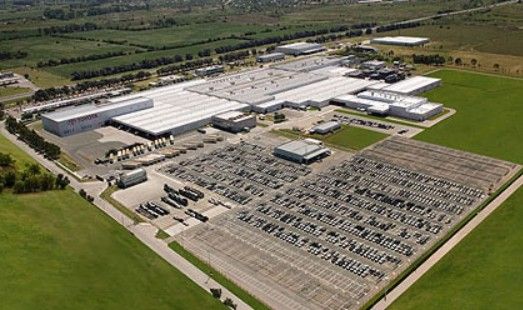
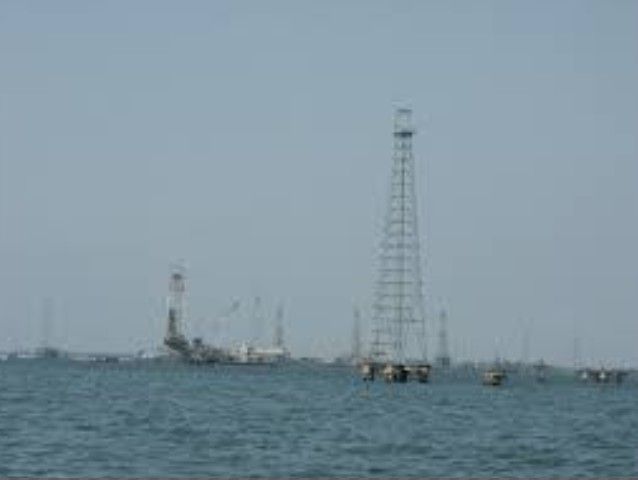

Oil Refineries that has continuously benefited from Mr. Andres Agostini’s White Swan Transformative and Integrative Risk Management. The White Swan Idea is at http://lifeboat.com/blog/2014/04/white-swan
Through five and half years, the White Swan Book’s Author Andres Agostini concurrently managed the risks of the world’s number 1 and the world’s number 3 Oil Refineries. There is a sample of installations of these two refineries.
The White Swan Idea is at https://lifeboat.com/blog/2014/04/white-swan

Oil and Gas Tankers (maritime vessels) that has benefited from Mr. Andres Agostini’s White Swan Transformative and Integrative Risk Management.
Through five and half years, the White Swan Book Author Andres Agostini concurrently managed the risks of ten (10) oil and gas tankers (maritime vessels). There is a sample of five (5) vessels here.
The White Swan Idea is at https://lifeboat.com/blog/2014/04/white-swan
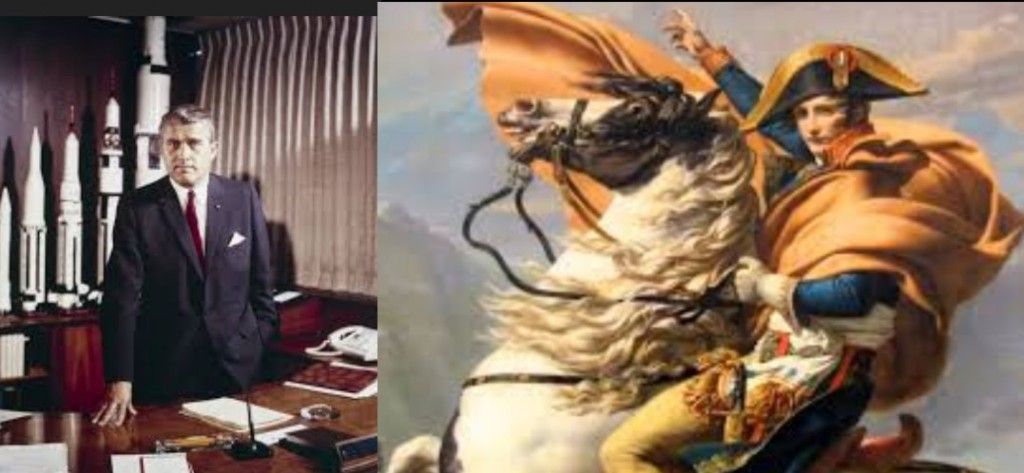
The Lifeboat Foundation Worldwide Ambassador Mr. Andres Agostini’s own White Swan Education Elucidated By Napoleon Bonaparte And Dr. Wernher Von Braun:, Countermeassuring Every Unthinkable Black Swan, at http://lifeboat.com/blog/2014/04/white-swan
Education Elucidated By Napoleon Bonaparte And Dr. Wernher Von Braun:
Reflecting On The Education We Immediately Need! Napoleon Bonaparte On Education (1769 — 1821) observed:
“…Education, strictly speaking, has several objectives: one needs to learn how to speak and write correctly, which is generally called grammar and belles letters. Each lyceum has provided for this object, and there is no well-educated man who has not learned his rhetoric [….] After the need to speak and write correctly comes the ability to count and measure. The lyceums have provided this with classes in MATHEMATICS embracing arithmetical and MECHANICAL KNOWLEDGE IN THEIR DIFFERENT BRANCHES [….] The elements of several other fields come next: chronology, geography, and the rudiments of history are also a part of the education of the lyceum [….] A young man who leaves the lyceum at sixteen years of age thence knows not only the mechanics of his language and the classical authors, the divisions of discourse, the different figures of eloquence, the means of employing them either to calm or arouse passions, in short, everything that one learns in a course on belles letters. He also would know the principal epochs of history, the basic geographical divisions, and how to compute and measure. He has some general idea of the most striking natural phenomena and the principles of equilibrium and movement both with regard to solids and fluids [….] Whether he desires to follow the career of the barrister, that of the sword, or ENGLISH, or letters; if he is destined to enter into the body of scholars, to be a geographer, engineer, or land surveyor — in all these cases he has received a general education necessary to become equipped to receive the remainder of instruction that his circumstances require, and it is at this moment, when he must make his choice of a profession, that the special studies present themselves …”. [113]
DR. WERNHER VON BRAUN ON EDUCATION, (1912 — 1977and Father of the American Space Program) observed:
“…The average citizen today, of course, has far more scientific information at his disposal than did those greatest of intellects of earlier times. Yet paradoxically, I think that THERE HAS NEVER BEEN A GREATER NEED FOR INCREASED UNDERSTANDING AND APPRECIATION OF SCIENCE. It has been said that, although the choice of direction for our civilization will be determined through democratic process, it is there that the problem begins. TO MAKE RATIONAL CHOICES, THE AVERAGE CITIZEN MUST UNDERSTAND THE NATURE AND ROLE OF SCIENCE AT A TIME WHEN ITS BREADTH AND COMPLEXITY ARE INCREASING ALMOST EXPONENTIALLY [….] Conversely, the scientist, at a time when he can barely keep up to date in his specialty, must not isolate himself in his parochial interest. Instead, he should see his profession as a part of the larger world, to evaluate himself and his work in relation to all forces, especially the humanities, which shape and advance society. THE NEED, THEN, IS FOR AN EDUCATIONAL PROCESS RESULTING IN MORE SCIENTIFIC LITERACY FOR THE LAYMAN, AND MORE LITERACY IN THE HUMANITIES FOR THE SCIENTISTS [….] Man in this scientific age is free only to the extent that he has a grasp on himself and his surroundings. FREEDOM — THE ABILITY TO SPEAK, THINK, ACT, AND VOTE INTELLIGENTLY — is based largely on our ability TO MAKE CHOICES growing out of our understanding of the issues involved. With each advance of science, there is an invitation to more understanding. This is the essence of the burden borne by all peoples since the dawn of humanity. There must be widespread understanding of the role of science in modern society, both as to its limits and our dependence on its basic function as a tool for our survival. This is the imperative for scientific literacy [….] How do we encourage scientific literacy? I THINK THE PROBLEM IS HOW TO INSTILL IN STUDENTS A PERMANENT DESIRE TO LEARN. All youth is endowed with curiosity from the very beginning. What can education process do, not only to keep this natural curiosity alive, but to make it a permanent part of the individual drive? … ”
